Are you thinking about investing in an interactive touchscreen display, but need a better idea of how your visitors and customers might be able to interact with one first?
The good news is that there are so many ways to interact with a touchscreen, and with the right developer or touchscreen specialist, the possibilities are virtually endless!
Perhaps you have an event coming up, or want to put an interactive touchscreen display in a public space to raise awareness of your product or brand.
But what’s the best way to go about it?
Well, as interactive experiences specialists, we thought we’d put together this blog to tell you more about what’s possible.
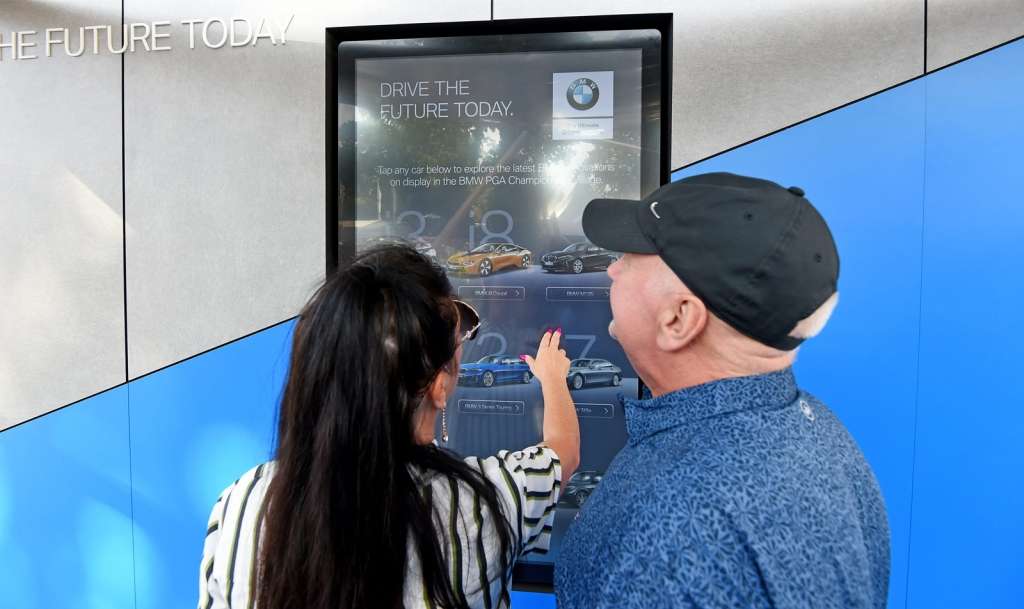
Whilst there are lots of options for interactivity, you must remember that it has to be simple enough for the audience to know what to do, engaging enough to be memorable, whilst at the same time providing the right level of information your audience is looking for.
If you can balance these three elements, then you’ll have a great experience for your customers, and you’ll achieve the objectives that you originally set out to achieve.
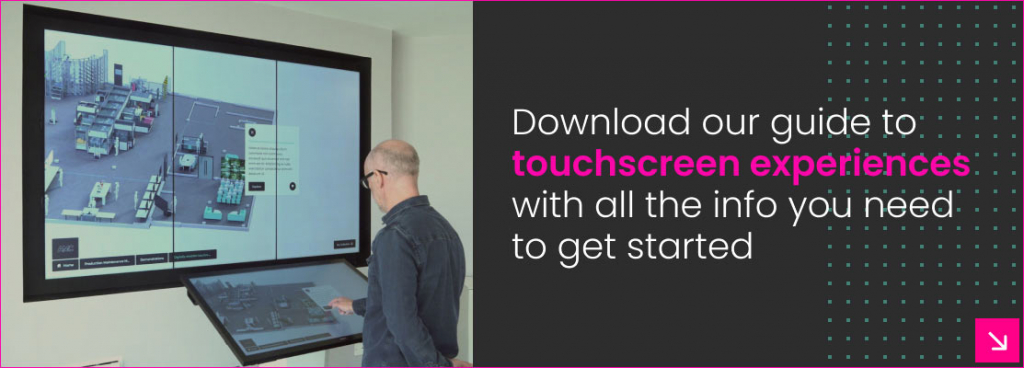
So first things first…
Think carefully about what you and your customers need

There are plenty of potential ways that your customers and visitors can interact with your content on a touchscreen.
However, what you’ll want to decide on first is what kind of experience you want your visitors to have, what do you want them to take away from the experience and how best to achieve these goals?
Here are some things you might want to think about before deciding which way to go:
1. Align business and customer objectives
You’ll want to align your objectives with the objectives of your audience. For example, if your objective is to capture leads at an event, your potential customers aren’t likely to offer their details unless you can give them a good reason to.
So, maybe give them the opportunity to email themselves information about your products in return for providing their details. A good example of this would be our interactives for Citrix.
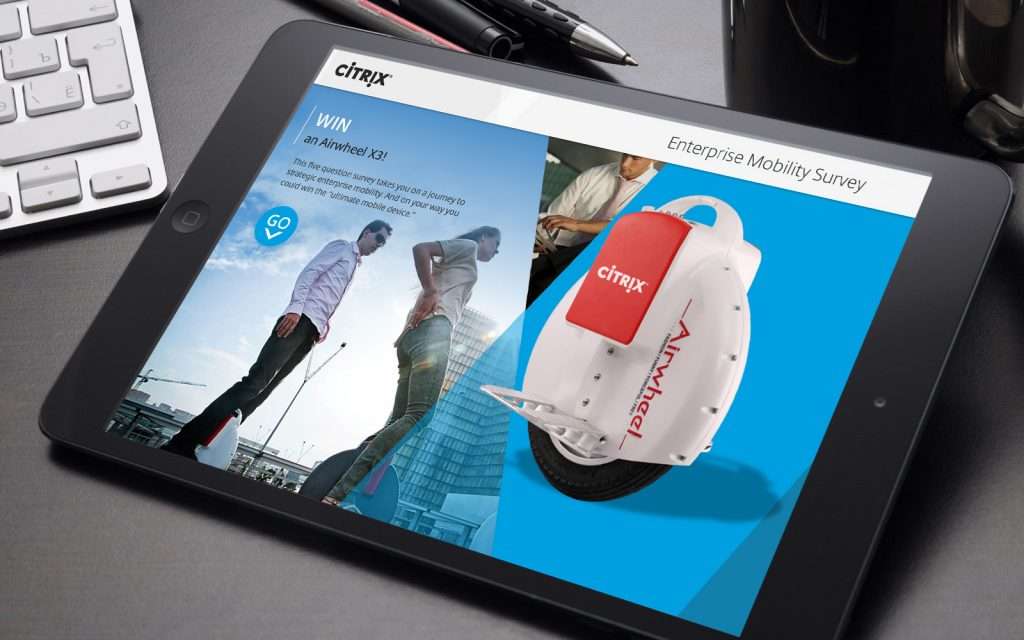
2. Make education fun
If you want to educate people about new products or important content, then wrapping this information up in a game is a great way to engage people and make the information more memorable.
The are plenty of ways to “gamify” content to make it fun but informative, and this can apply to all ages!
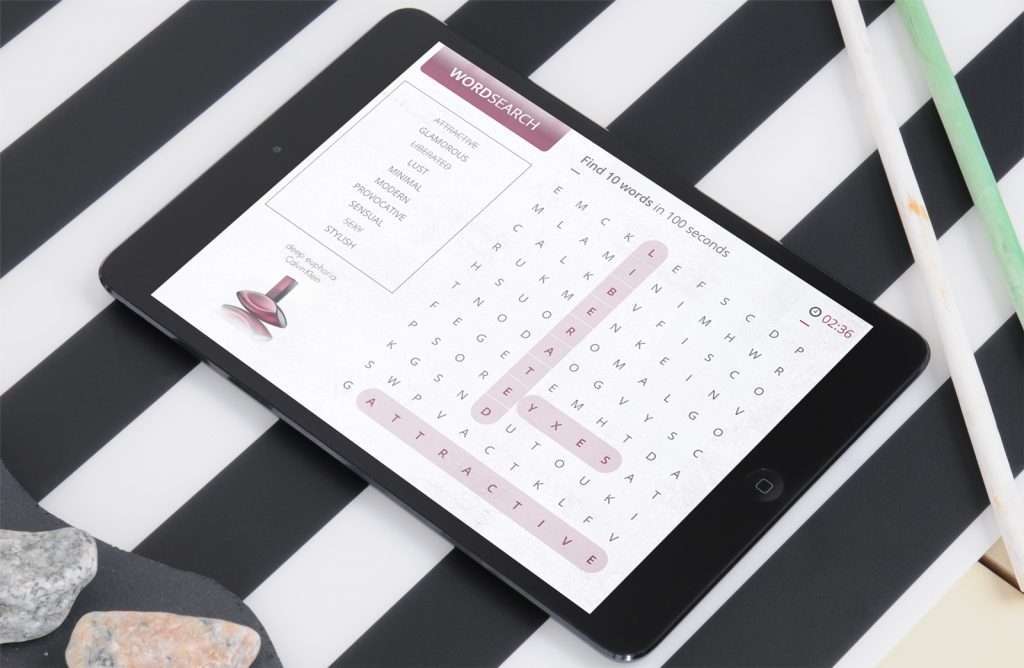
3. Make it personal
Are you looking to create a personalised experience? Perhaps you have a retail store or need to target your content to a particular demographic for marketing, sales or educational purposes. If so, you can create experiences that are designed to recognise the age or sex of a visitor through the screens camera, the experience then displays content relevant to that person.
By layering content in your experience, you can also personalise the content depending on peoples’ interest or level of understanding, only showing that content most relevant to them.
4. Make it an experience
Memorable experiences are what makes your brand stand out. People are more likely to remember experiences than if you were to simply hand them a brochure or show them a video.
If you can help them to explore your content in surprising ways, it can help to reinforce your message all the more. Object recognition is a great way of connecting the physical world to the digital.
You can create an experience where the touchscreen can recognise an object placed on it and bring up specific content related to that object. Then respond in a similar way when a different object is introduced.
Some of the other options for your interactive touchscreen display may include:
- Videos
- Quizzes
- Speech recognition
- Gesture control
- Facial and shape recognition
- Manipulating 3d models
- Creating drawings and notes they can be saved for later or emailed
- iBeacons
- NFC

How do you choose what’s right for your audience?

If you’re wondering how you might go about choosing the right experience for your audience, the best thing to do is to take a step back to point 1 we mentioned above.
Aligning your business goals with those of your audience is extremely important if you want your touchscreen experience to be a success.
You may already have a vague idea in your head about some of the features you might want to include in your touchscreen – and perhaps even the type of content interactivity that might appeal best to your audience.
Step one
Ask yourself the following questions:
- What types of content do you want to include in your experience (e.g., videos, pdfs, demos etc.)?
- What impression do you want to leave visitors with?
- What do you want them to do on the experience (e.g., explore products & services, leave contact information or have fun through games etc.)
- What sort of interactive experience do you want your audience to have? (You could use some of the above examples as inspiration!)
- Do you need to capture user information? (e.g., lead capturing for marketing post-event)
- Will your touchscreen need to interact with other software or websites?
- Do you need a way of updating your content in the future?
- Will you need to access your touchscreen remotely? (If so, internet access will be required)

If you’d like some more guidance on the possibilities when developing your interactive touchscreen display, a touchscreen specialist or developer should be able to advise you further.
Or, you can take a browse at our recent blog: 7 things to consider before choosing an interactive touchscreen solution for your business.
Step two
The next step is to then think about it from your audience’s perspective, what might be the answers to the following questions:
- What do your customers want from you?
- Why will they come to your stand, what will attract them?
- What are they looking for (perhaps not specifically from you, but in general)?
- What will encourage them to stay on your stand and explore your content?
- What will bring your content and messages to life, and resonate with them?
- What sort of experience do they want to have?
- What kind of impression do you want to leave them with?
- What do you want from them before they go? (Feedback, contact details etc.)
By answering some of these questions, you can gradually start to build up a more detailed picture of the kind of experience you’d like your audience to have, and the sort of interactions that’ll help to reinforce this experience.
Advice on your next steps
Whilst there are lots of options for interactivity, you must remember:
- It has to be simple enough for the audience to know what to do,
- Engaging enough to be memorable,
- whilst at the same time providing the right level of information your audience is looking for.
If you can balance these three elements, then you’ll have a great experience for your customers, and you’ll achieve the objectives that you originally set out to achieve.
Conclusion
Hopefully, this blog has managed to give you a better idea of just some of the ways the public can interact with a touchscreen display.
There are so many options that with the right developer or touchscreen specialist, the only limit is your imagination!
Remember, it’s important to align your business goals and objectives with the goals of your target audience, so you can create a truly memorable and engaging experience they’re going to love.
Are you looking to learn more about some of the possibilities mentioned above? If so, why not get in touch for more information on +44 (0)117 329 1712 or hello@popcomms.com. We’d love to hear from you, and we promise to reply with something helpful!

Related Posts
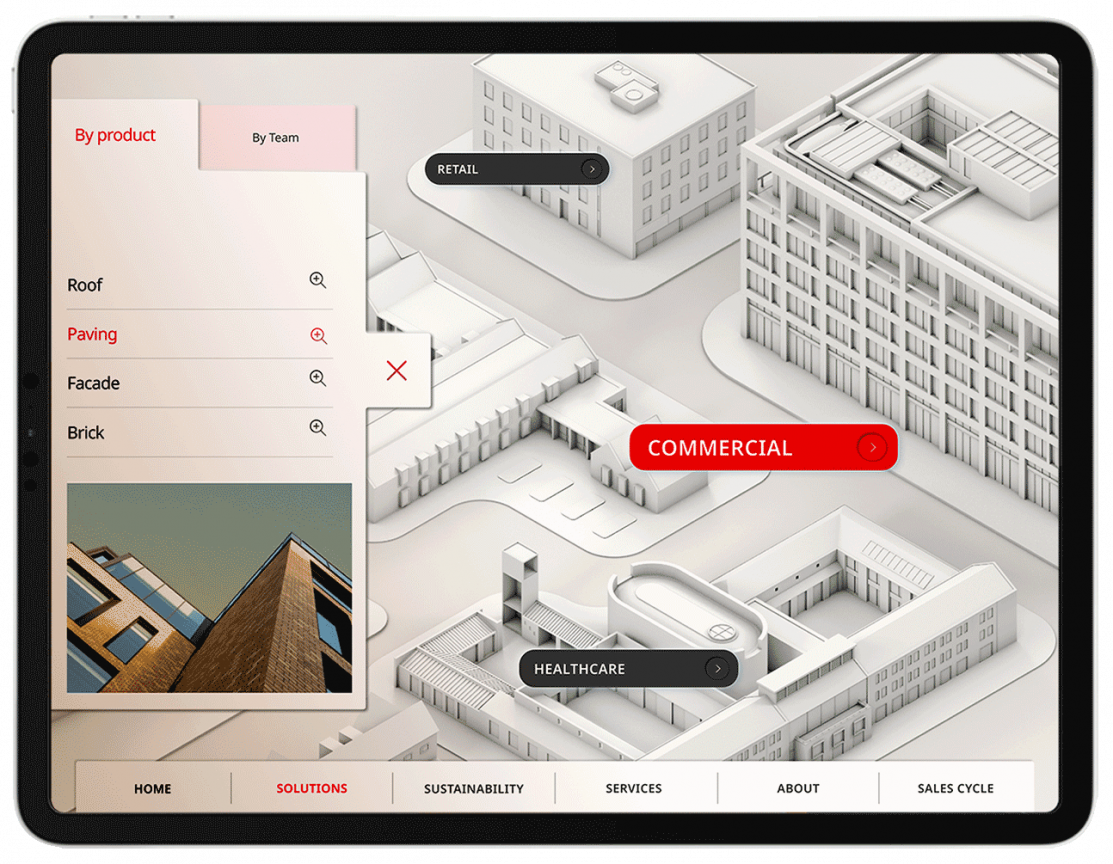
Why Conversational Presenting & Interactive Touchscreens Go Hand-in-Hand
Read

What Features Can You Include in a Touchscreen?
Read
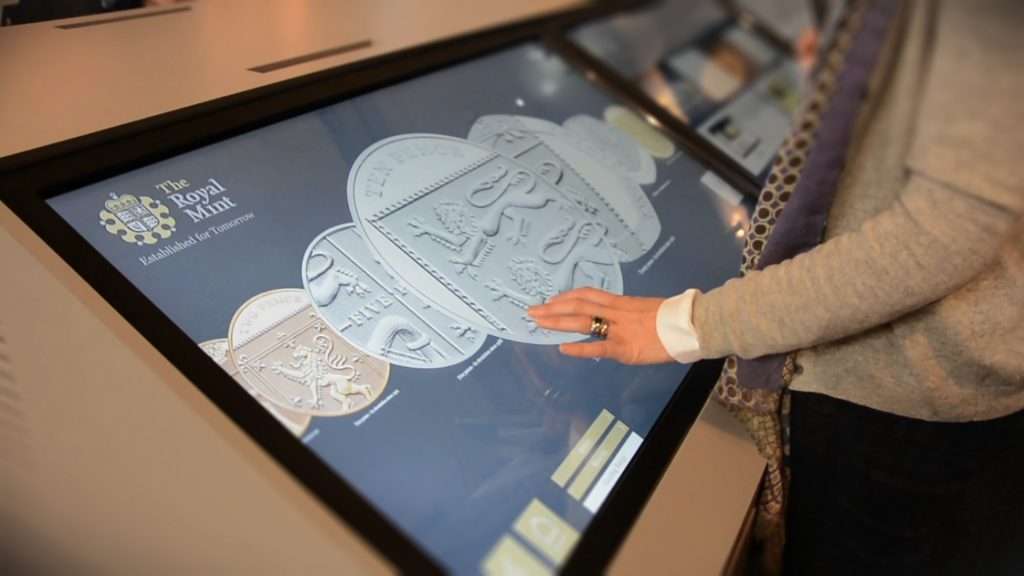
Why Interactive Touchscreens Keep Customers Engaged Longer
Read
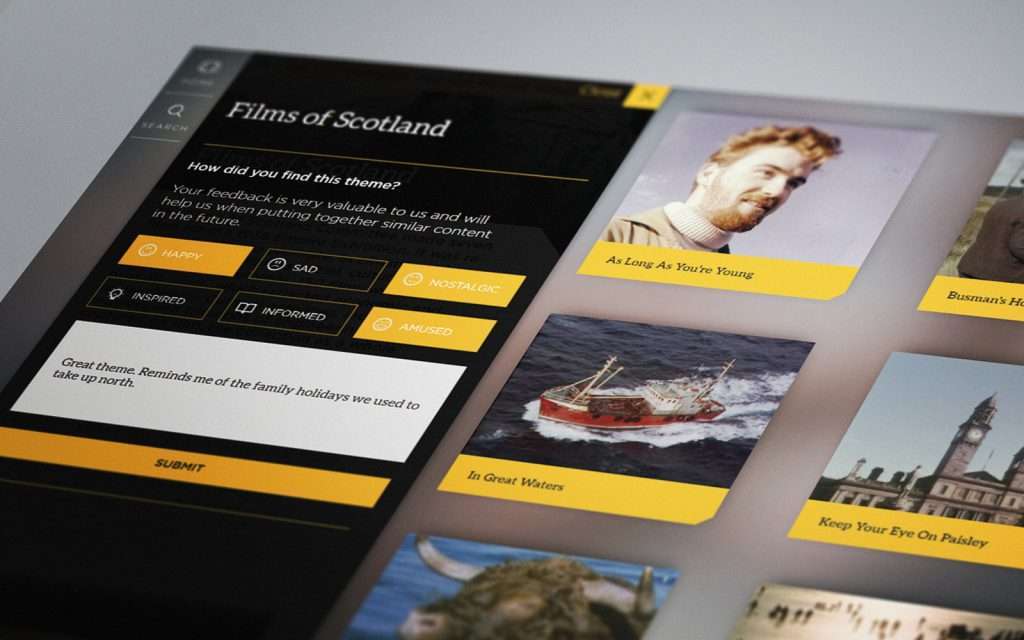
3 Valuable Brand Lessons for Success in the Experience Economy
Read